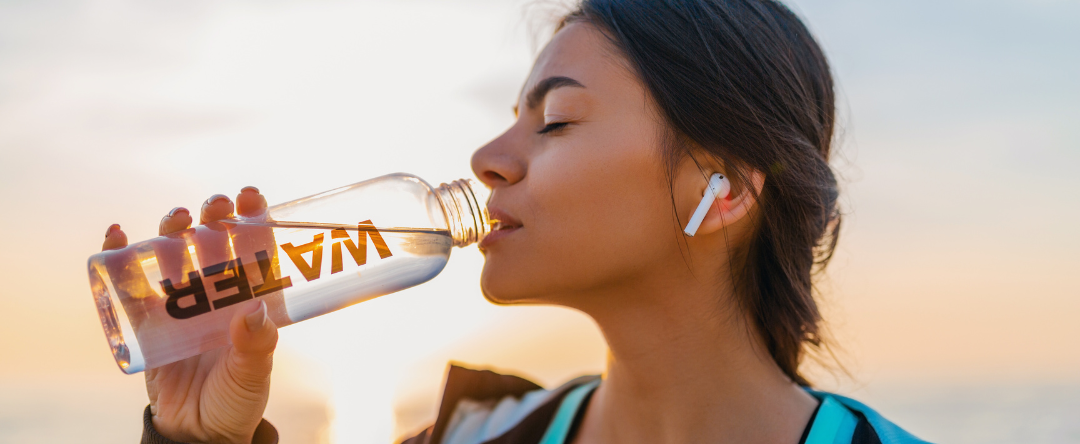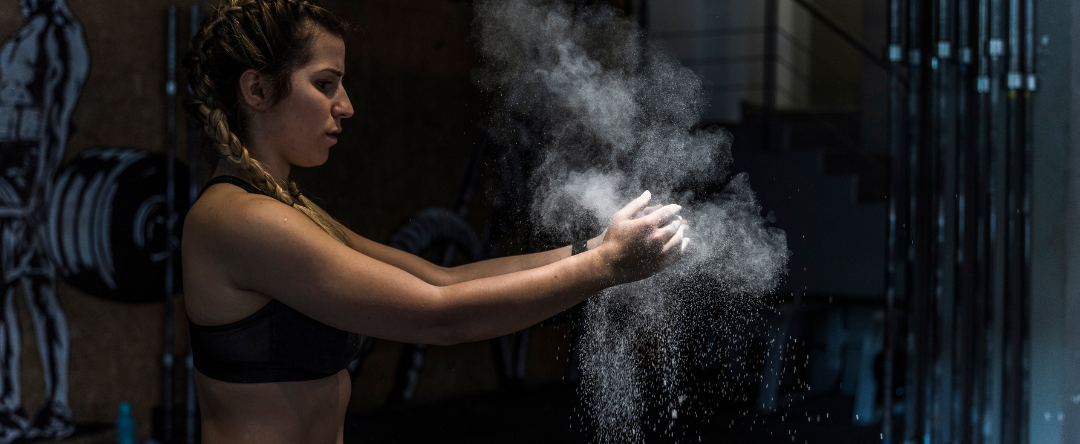At Trace, we deliver clean, science-based supplements with bioavailable minerals your body can actually use. Our electrolyte formulas are rigorously tested for purity, potency, and absorption, crafted without added sugars or unnecessary fillers. With decades of expertise in remineralization and a focus on long-term wellness, Trace empowers you to hydrate smarter, recover faster, and feel your best every day, no matter your activity level or lifestyle demands.
Many people assume that plain water is enough to stay hydrated, but is that really the case? Especially during high activity or heat periods, your body loses vital minerals through sweat that plain water may not replace. That’s where electrolyte-enhanced solutions come in. If you’ve ever wondered, “Does water have electrolytes?” the answer could change how you approach hydration and recovery.
This article will explore whether water naturally contains electrolytes, how electrolyte-enhanced options compare to plain water for hydration, and what role trace minerals play in supporting fluid balance, energy, and overall wellness.
Key Takeaways:
- Why Electrolytes and Trace Minerals Matter: Electrolytes and trace minerals are essential for hydration, helping regulate fluid balance, support nerve signaling, and enable smooth muscle contractions.
- When Water Isn’t Enough: During intense workouts, illness, or exposure to heat, plain water alone may not restore lost minerals, making electrolyte-enhanced hydration critical for effective recovery.
- Hydration Myths vs. Science: Understanding the facts behind hydration helps you choose smarter options and ensure your body gets the mineral support it needs to perform optimally.
Electrolyte-Enhanced Water vs. Plain Water: Key Differences
Let’s examine a common hydration debate: Is there a real difference between drinking plain water and choosing electrolyte-enhanced options?
What Plain Water Offers And What It Doesn’t
Plain water is vital for hydration and supports countless bodily functions, from temperature regulation to nutrient transport. However, plain water falls short when it comes to replacing minerals lost through sweat or stress. The answer to “does water have electrolytes” is yes, but in amounts that are often too small to meaningfully restore electrolyte balance.
Why Electrolytes Are Essential For Recovery
Electrolytes like sodium, potassium, magnesium, and calcium are needed to regulate fluid balance, support nerve function, and enable muscle contractions. When your body loses these minerals through activity or environmental conditions, replenishing them becomes essential to prevent symptoms like cramps, fatigue, or headaches. This is where plain water cannot keep up—its lack of electrolytes limits its ability to support full-body recovery.
How Electrolyte-Enhanced Water Bridges The Gap
Electrolyte-enhanced water contains added minerals in concentrations designed to match what the body loses. This targeted support helps you rehydrate faster and improves how your body retains fluids. Unlike standard bottled or tap water, which offer minimal mineral content, electrolyte formulas are engineered to restore balance and optimize performance.
When You Need More Than Hydration
Situations like intense workouts, high heat, illness, or long travel increase your body’s demand for electrolytes. Relying solely on plain water may result in diluted electrolytes and incomplete recovery. Electrolyte-enhanced water offers a simple solution, supporting better hydration outcomes without sugar, calories, or unnecessary additives.
When To Choose Electrolyte Water Over Plain Water
It’s easy to assume that grabbing a glass of water is always the best route to hydration. While plain water is essential and effective for keeping your body functioning, there are situations where your cells require more than just H₂O to operate at their peak.
Electrolytes—minerals like sodium, potassium, magnesium, and calcium—are crucial in balancing fluid levels, maintaining nerve function, and supporting muscle contraction.
So, what does this mean for your hydration strategy?
- Intense Physical Activity: When you sweat, your body loses water and electrolytes. If you’re exercising for an extended period, especially in hot weather or during high-intensity intervals, plain water alone may not adequately replace what you’ve lost. In these scenarios, electrolyte-enhanced fluids help restore your body’s mineral balance so your performance and recovery don’t falter.
- Illness or Dehydration: Illness-related dehydration, particularly from fever, vomiting, or diarrhea, rapidly depletes your body’s electrolyte stores. Replenishing fluid and minerals is vital to prevent complications like cramps, dizziness, and fatigue. Electrolyte drinks can support quicker, more complete hydration when your needs are above the everyday baseline.
- Low-Carb Or Keto Diets: Carb-restricted diets alter how your body handles fluids, often leading to increased excretion of water and electrolytes. Supplementing with electrolytes—rather than relying on water alone—can help maintain energy levels, reduce “keto flu” symptoms, and keep you balanced.
- Extreme Environments: Hot climates, high altitudes, or situations that induce heavy sweating demand more from your hydration routine. Plain water addresses thirst, but if your environmental conditions cause substantial mineral loss, adding electrolytes ensures your cells get the support they need.
While plain water remains a foundational part of healthy hydration, knowing when to upgrade to electrolyte water empowers you to address your body’s changing demands, helping you stay balanced, alert, and ready for whatever comes next.
Hydration Strategies For Athletes And Fitness Enthusiasts
Staying ahead in athletic performance demands meticulous attention to hydration. While it’s easy to assume that grabbing a bottle of water before and after a workout covers your needs, the science tells a more nuanced story, especially when physical intensity rises. Let’s talk about how to add electrolytes to water!
Why Electrolytes Matter In Athletic Hydration
During vigorous exercise, your body loses fluid and vital electrolytes—like sodium, potassium, and magnesium—through sweat. Unlike plain water, electrolyte-enhanced drinks are specifically formulated to replenish what’s lost. These essential minerals help regulate nerve signals, control muscle contraction, and maintain fluid balance within your cells. When these minerals dip too low, athletes risk muscle cramps, fatigue, and a sharp decline in performance.
The Limits Of Plain Water
Does water have electrolytes? Only trace amounts. Plain water can rehydrate, but refilling with H₂O won’t sufficiently restore balance if you're losing significant electrolytes. Excessive intake of plain water during prolonged or intense activity may dilute your remaining electrolytes, leading to a rare but serious condition called hyponatremia.
Smart Hydration Strategies For Optimal Performance
- Pre-Hydrate With Electrolytes: Start your training with balanced fluid and electrolyte levels. Sipping an electrolyte-rich beverage before intense activity primes your body’s hydration status.
- Drink to Match Sweat Loss: Every athlete sweats differently. Weigh yourself before and after exercise to estimate fluid loss and tailor your intake accordingly. Replace each pound lost with at least 16-24 ounces of fluid, ideally with electrolytes.
- Go Beyond Sodium: Many sports drinks focus on sodium and ignore other critical trace minerals. Seek products that replenish potassium, magnesium, calcium, and trace minerals like zinc and manganese for whole-body support.
- Hydrate With Purpose, Not Just Routine: Listen to your body’s signals and don’t wait until you’re parched. Thirst lags behind your body’s actual needs during exercise, so schedule hydration intervals that reflect the intensity and length of your activity.
- Consider Recovery: Post-workout hydration helps the body repair and rebalance. Including electrolytes in your recovery strategy supports muscle function and restores homeostasis, setting you up for your next workout.
Recognizing Signs Of Electrolyte Imbalance
Your body depends on a delicate balance of electrolytes to keep muscles firing, nerves transmitting, and organs operating smoothly. When this equilibrium slips, the signs can range from subtle to severe.
- Common But Overlooked Symptoms: Fatigue, muscle cramps, and frequent headaches can signal early electrolyte depletion. These symptoms are often dismissed but may indicate your body struggles to maintain mineral balance.
- More Noticeable Warning Signs: Irregular heartbeat, dizziness, and mental confusion—especially after intense exercise or heavy sweating—can indicate a more serious electrolyte disturbance that needs immediate attention.
- Triggers Beyond Physical Activity: Electrolyte imbalances aren’t exclusive to athletes. Chronic stress, medications, illness, and digestive issues like vomiting or diarrhea can all deplete essential minerals and impact hydration.
- Diet and Mineral Intake Matter: A diet low in mineral-rich foods or consistent reliance on filtered or low-mineral water can increase the risk of imbalance. Without trace minerals, hydration alone may not be enough to restore equilibrium.
- Why Early Detection Is Key: Recognizing signs of imbalance early allows quicker correction. Addressing these symptoms with proper electrolyte intake can improve how you feel, think, and perform each day, no matter your activity level.
Debunking Common Myths About Electrolytes and Hydration
When it comes to hydrating your body, myths and half-truths can make it challenging to distinguish what’s genuinely beneficial from what’s just clever marketing. Let’s set the record straight by looking at some of the most common misconceptions about electrolytes and hydration.
Myth 1: Plain Water Is Always Enough For Hydration
While water is fundamental for life, it doesn’t always contain the minerals your body loses through sweat. The question: Does water have electrolytes? Hinges on the source. Pure, distilled, or reverse-osmosis water often contains few or no electrolytes. Natural, mineral-rich waters do, but amounts can vary greatly. Replacing lost electrolytes is crucial for optimal hydration and overall health in situations like intense exercise, heat, or illness.
Myth 2: Only Athletes Need Electrolyte Supplements
Electrolyte needs go far beyond elite sports. Daily activities, especially in hot climates or during illness, can lead to substantial electrolyte loss. Even children, older adults, and pets are vulnerable to imbalances, which may cause fatigue, cramps, headaches, or confusion. Addressing these needs supports wellness for everyone, not just marathon runners.
Myth 3: All Hydration Drinks Are Created Equal
Many sports drinks are marketed as electrolyte powerhouses but often come loaded with added sugars, artificial colors, and flavors. Not all hydration formulas replenish the broad spectrum of minerals your body uses, and some may contribute to unhealthy spikes in blood sugar. Clean, science-backed hydration should prioritize replenishing trace minerals without unnecessary additives.
Myth 4: You Can Overhydrate With Electrolytes
Balance is key. While excessive fluid intake, without enough electrolytes, can dilute blood sodium levels (a risk called hyponatremia), mindful electrolyte consumption helps your body maintain fluid balance and proper nerve and muscle function. Honing in on natural sources and well-formulated supplements makes hydration safer and more effective.
Final Thoughts
For optimal hydration, knowledge is your greatest tool, and real results are grounded in science, not hype. Plain water is an essential ally, but it’s not a complete solution when your body is under stress from heat, intense activity, or modern dietary patterns that often leave us mineral-deficient. The answer to “Does water have electrolytes?” is yes, but only in trace amounts, and usually not enough to support your body’s complex hydration and performance needs robustly.
That’s why at Trace Minerals, we’re passionate about bridging this gap. Electrolyte-enhanced hydration delivers a full spectrum of essential minerals—sodium, potassium, magnesium, and more—in bioavailable forms your body needs for fluid balance, energy production, and cellular health. Backed by clinical expertise and decades of rigorous research, our Keto Electrolyte Drops and 40,000 Volts Electrolyte Concentrace are formulated to empower your hydration, support your wellness, and help you thrive every moment.
With Trace, you’re not just drinking for thirst but replenishing what modern life (and plain water) leaves behind.
Read also:
- Is Table Salt Mixed With Water Bad For You?
- Good And Bad Salts For Electrolytes: What You Need To Know
- The Benefits Of Electrolytes - Trace Minerals
Frequently Asked Questions About Does Water Have Electrolytes
How does electrolyte water differ from plain water?
Electrolyte water contains dissolved minerals like sodium, potassium, magnesium, and chloride—essential for maintaining your body’s fluid balance, nerve function, and muscle performance. While plain water is vital for hydration, it lacks these charged minerals.
What is electrolyte-enhanced water?
Electrolyte-enhanced water is plain water that’s been fortified with electrolytes—either naturally (from mineral-rich sources) or by adding supplemental minerals, like Trace’s ConcenTrace® Trace Mineral Drops. These electrolytes are key in regulating hydration, optimizing muscle function, and supporting overall wellness, especially when your body loses minerals through sweat.
Why might someone choose electrolyte water over plain water?
If you’re an athlete, have a physically demanding job, spend time in hot conditions, or are recovering from illness, your body loses electrolytes more rapidly. Choosing electrolyte water helps replace what’s lost and supports faster, more complete hydration than plain water alone.
Can drinking plain water hydrate you just as well as electrolyte water?
Plain water hydrates but might not fully restore the minerals lost through sweat, stress, or environmental factors. Electrolyte water, especially when enhanced with a broad spectrum of ionic minerals from Trace, replenishes fluids and electrolytes, supporting energy, immunity, and optimal cellular function.
When is the best time to drink electrolyte water?
Drink electrolyte water before, during, and after intense activity, heat exposure, or episodes of dehydration (like illness). It’s especially beneficial first thing in the morning—to replenish overnight losses—or anytime you feel sluggish, fatigued, or lightheaded. Adding Trace Mineral Drops to your water is a simple, effective habit for daily mineral support.
What are the benefits of drinking electrolyte-enhanced water?
Electrolyte-enhanced water from Trace goes beyond hydration. It supports rapid rehydration, sustained energy, muscle performance, nerve signaling, pH balance, and whole-body wellness. For those with modern nutrient shortfalls, it’s an accessible route to restore balance, boost immunity, and experience measurable vitality.
How much electrolyte water should you drink per day?
Your needs depend on your activity level, climate, and overall health. As a baseline, aim for at least half your body weight in ounces of water daily, enhancing at least one or two servings with Trace ConcenTrace® Trace Mineral Drops for optimal mineral support. Listen to your body: thirst, fatigue, and muscle cramps can all signal the need for more electrolytes.
Are sports drinks and electrolyte water the same?
Not exactly. While both provide electrolytes, most sports drinks contain added sugars, artificial flavors, and limited mineral profiles. Trace electrolyte water delivers a full spectrum of 72+ ionic trace minerals without excess sugar or synthetic additives—empowering you to hydrate cleanly, effectively, and sustainably.
Sources:
- Popkin, B. M., D'Anci, K. E., & Rosenberg, I. H. (2010). Water, hydration, and health. Nutrition reviews, 68(8), 439–458. https://doi.org/10.1111/j.1753-4887.2010.00304.x
- Jéquier, E., & Constant, F. (2010). Water as an essential nutrient: the physiological basis of hydration. European journal of clinical nutrition, 64(2), 115–123. https://doi.org/10.1038/ejcn.2009.111
- National Research Council (US) Subcommittee on the Tenth Edition of the Recommended Dietary Allowances. Recommended Dietary Allowances: 10th Edition. Washington (DC): National Academies Press (US); 1989. 11, Water and Electrolytes. Available from: https://www.ncbi.nlm.nih.gov/books/NBK234935/









